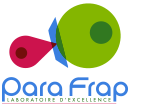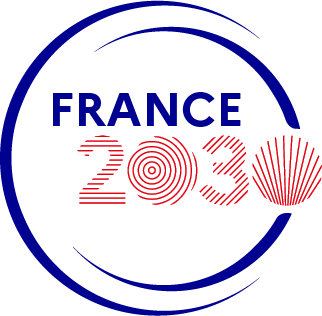

 |
Philippe BASTIN |
|
|
Information |
||
| Trypanosome Cell Biology Unit | ||
| Paris, Institut Pasteur | ||
| 0000-0002-3042-8679 | ||
| This email address is being protected from spambots. You need JavaScript enabled to view it. | ||
| https://research.pasteur.fr/en/team/trypanosome-cell-biology/ | ||
| @BastinLab_Paris | ||
|
Scientific interests and projects |
||
|
The Trypanosome Cell Biology Unit fits perfectly with the 4 major scientific topics highlighted by the ParaFrap consortium: • Post-genomic data exploration: The unit is studying the function of various genes in trypanosomes, especially at the level of the cytoskeleton, using a collection of tools such as inducible RNAi, double knockout, gene replacement or Cas9/Cas13 approaches. This is done at the level of parasites in culture but also during infection in tsetse flies or in mice. • Mechanisms of pathogenesis: Thanks to its own tsetse fly breeding colony, the unit can ask questions through the full life cycle of African trypanosomes and importantly it can study the infection via the natural route that is the bite of the tsetse fly. • Parasite molecular and cellular biology: The unit is well known for cell biology, especially in the context of cell movement, protein trafficking and organelle function, once again in in vitro and in vivo contexts. • Towards new intervention strategies against parasitic pathogens: The work carried out in the field in collaboration with the IRD and partners in Africa has significant potential for the diagnosis of gambiense HAT and could change the way both patient treatment and follow-up is carried out. It could be very significant for the WHO programme of elimination of the disease |
||
|
Top 5 publications of the last 5 years |
||
|
1. Bertiaux, E., Morga, B., Blisnick, T., Rotureau, B., and Bastin, P. (2018). A Grow-and-Lock Model for the Control of Flagellum Length in Trypanosomes. Curr Biol 28, 3802-3814 e3803. doi: 10.1016/j.cub.2018.10.031 2. Bonnefoy, S., Watson, C.M., Kernohan, K.D., Lemos, M., Hutchinson, S., Poulter, J.A., Crinnion, L.A., Berry, I., Simmonds, J., Vasudevan, P., O'Callaghan, C., Hirst, R.A., Rutman, A., Huang, L., Hartley, T., Grynspan, D., Moya, E., Li, C., Carr, I.M., Bonthron, D.T., Leroux, M., Care4Rare Canada, C., Boycott, K.M., Bastin, P., and Sheridan, E.G. (2018). . Am J Hum Genet 103, 727-739. doi: 10.1016/j.ajhg.2018.10.003 3. Bertiaux, E., Mallet, A., Fort, C., Blisnick, T., Bonnefoy, S., Jung, J., Lemos, M., Marco, S., Vaughan, S., Trepout, S., Tinevez, J.Y., and Bastin, P. (2018). Bidirectional intraflagellar transport is restricted to two sets of microtubule doublets in the trypanosome flagellum. J Cell Biol 217, 4284-4297. doi: 10.1083/jcb.201805030 4. Calvo-Alvarez, E., Cren-Travaille, C., Crouzols, A., and Rotureau, B. (2018). A new chimeric triple reporter fusion protein as a tool for in vitro and in vivo multimodal imaging to monitor the development of African trypanosomes and Leishmania parasites. Infect Genet Evol 63, 391-403. doi: 10.1016/j.meegid.2018.01.011 5. Capewell, P., Cren-Travaille, C., Marchesi, F., Johnston, P., Clucas, C., Benson, R.A., Gorman, T.A., Calvo-Alvarez, E., Crouzols, A., Jouvion, G., Jamonneau, V., Weir, W., Stevenson, M.L., O'Neill, K., Cooper, A., Swar, N.K., Bucheton, B., Ngoyi, D.M., Garside, P., Rotureau, B., and MacLeod, A. (2016). The skin is a significant but overlooked anatomical reservoir for vector-borne African trypanosomes. Elife 5:e17716. doi: 10.7554/eLife.17716 |
||
>
Gordon Research Conference 2026 – Biology of Host–Parasite Interactions The 2026 Gordon Research Conference (GRC) on Biology of Host–Parasite Interactions will take place June 7–12, 2026, at Salve Regina University, in...
The INSERM workshop “Modern methods in molecular parasitology” will take place in Montpellier, France, from 4–6 November 2026. This event will bring together leading experts in...
The 15th CAPF (French Anti-Parasitic and Anti-Fungal Consortium) workshop will take place on 16–17 March 2026 in Strasbourg (France). This event is an excellent opportunity for students and postdoctoral researchers to participate and contribute...
Call for Applications: New Junior Research Groups at Institut Pasteur The Institut Pasteur has launched an international call to recruit new junior group leaders.This is a unique opportunity for high-potential scientists to...
JOB : Ingénieur·e d’étude / Research Engineer – Mosquito Immunity (IBMC, Strasbourg) 🇫🇷 Le laboratoire Mosquito Immune Responses recrute un·e ingénieur·e d’étude à l’IBMC (Strasbourg). La personne recrutée sera en...
Applications are now open for the 2026 Biology of Parasitism (BoP) course, taking place June 12–July 23, 2026 at the Marine Biological Laboratory in Woods Hole, MA.This intensive 6-week program offers PhD students and postdocs advanced training in...
Newcastle University offers a full-time, fixed-term position (3 years) for a Research Assistant or Research Associate in Molecular Parasitology — funded by the Medical Research Council (MRC). About the Opportunity Location:...
Multidisciplinary PhD opportunity in the fields of infectious diseases, gene regulations and molecular signalisation. Fully Funded 4-Year PhD at the University of York A fully funded PhD opportunity is available at the...
The EMBO Workshop 2025 “Host–Parasite Relationship: From Mechanisms to Control Strategies”, took place from October 5–8, 2025, on the beautiful Île des Embiez (France). Organized within the framework of the LabEx ParaFrap and...
Postdoc (M/F) in molecular and biochemical parasitology (Toxoplasma gondii) A 24-month post-doctoral position starting on January 2026 and funded by the French National Research Agency (ANR) is available in the in the...

© 2023. All rights reserved MLCOM
Notre site LabEx ParaFrap utilise des cookies pour réaliser des statistiques de visites, partager des contenus sur les réseaux sociaux et améliorer votre expérience. En refusant les cookies, certains services seront amenés à ne pas fonctionner correctement. Nous conservons votre choix pendant 30 jours. Vous pouvez changer d'avis en cliquant sur le bouton 'Cookies' en bas à gauche de chaque page de notre site. En savoir plus
Ce site utilise des cookies pour assurer son bon fonctionnement et ne peuvent pas être désactivés de nos systèmes. Nous ne les utilisons pas à des fins publicitaires. Si ces cookies sont bloqués, certaines parties du site ne pourront pas fonctionner.
Ce site utilise des cookies de mesure et d’analyse d’audience, tels que Google Analytics et Google Ads, afin d’évaluer et d’améliorer notre site internet.
Ce site utilise des composants tiers, tels que NotAllowedScript69a04e2f0fe1eReCAPTCHA, Google NotAllowedScript69a04e2f0fb36Maps, MailChimp ou Calameo, qui peuvent déposer des cookies sur votre machine. Si vous décider de bloquer un composant, le contenu ne s’affichera pas
Des plug-ins de réseaux sociaux et de vidéos, qui exploitent des cookies, sont présents sur ce site web. Ils permettent d’améliorer la convivialité et la promotion du site grâce à différentes interactions sociales.
Ce site web utilise un certain nombre de cookies pour gérer, par exemple, les sessions utilisateurs.

